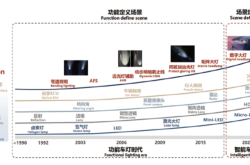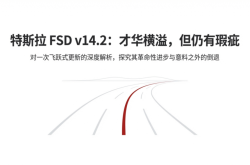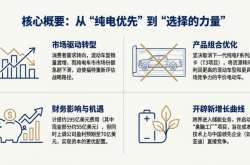The Real Palantir: Beyond the Media's Glance
![]() 08/21 2025
08/21 2025
![]() 573
573

Peter Thiel, Co-founder of Palantir and Silicon Valley Visionary
To most Chinese investors, "Palantir" is not a household name compared to tech titans like Apple, Google, Tesla, Amazon, and Facebook.
Yet, in today's European and American markets, Palantir's popularity has soared past these star companies.
With a latest market valuation of approximately $437 billion, equivalent to roughly RMB 3.13 trillion, Palantir's influence is undeniable.
Although it trails behind the "Silicon Valley Seven Sisters" in terms of market capitalization, its unique value sets it apart from the pack.
From many media perspectives, Palantir is labeled as an AI technology company, which, while accurate, fails to capture the full essence of its business model.
As a technology company that generates half of its revenue from the consumer end (C-end) and the other half from the government end (G-end), Palantir is an atypical commercial enterprise—more aptly described as a "Skynet-style military-industrial complex".
Palantir truly emerged as a significant player during the Russo-Ukrainian war. Beyond the obvious profits garnered from the conflict, its ability to influence sovereign-level power is what truly sets it apart from other technology companies.
As a key driver and co-founder of Palantir, Peter Thiel, the Silicon Valley Visionary, wields more influence in the US political sphere than any other Silicon Valley entrepreneur. He mentors Vance and is revered by Elon Musk, who, despite his enthusiasm for power games, can only aspire to Thiel's stature.
Providing a comprehensive description and analysis of Palantir remains an exceptionally challenging task even today.
Therefore, the Palantir we encounter in the media is a mere glimpse, far from the full picture.
Palantir's origins trace back to the Paypal Mafia, initially focusing on financial anti-fraud.
However, after 2003, it received funding from In-Q-Tel (CIA venture capital) to delve into anti-terrorism intelligence.
Prior to Palantir, intelligence work was rudimentary and inefficient.
It primarily fell into the following categories:
1. Large-scale intrusive methods, such as requiring extensive strip searches at airports to prevent bombers. Peter Thiel argues that the bomber's success was due to killing everyone's time. Similarly, due to loan fraud, lending was restricted, impacting many innocent borrowers.
2. Traditional intelligence models, characterized by bureaucratic hierarchy. These models tend to spend more money while accomplishing less, making intelligence gathering more difficult and costly. Examples include the discovery of Doge and the US Department of Defense's $1 trillion budget.
3. Black box team approach: Hiring algorithm experts to bypass regulations and engage in illicit activities, leading to corruption. Moreover, these static algorithms can quickly become obsolete, necessitating frequent rewrites. As a result, data cannot be reused or scaled effectively.
For instance, the Afghan War lacked oversight, yielded no significant results, and cost several trillion dollars.
4. US agencies still adopt a cost-plus procurement model, leading to inefficient software and redundant hardware. Interfaces from the 1980s are not uncommon.
The products used in the Afghan War were deemed inferior by soldiers, paling in comparison to Palantir's offerings.
Palantir's technology adheres to three core principles:
1. Technology must be linked to real-world actions; otherwise, data and models lose their significance.
2. Organizations must embrace complexity to survive.
3. Technology should simplify complexity as much as possible.
The first approach involves spending more to achieve more: intruding on people's privacy on a large scale to gather data.
The second approach involves spending less to do less: simply canceling loan businesses to avoid fraud or prohibiting flights to prevent terrorists.
Palantir, however, achieves more with less:
It reorganizes intelligence through software, efficiently coordinating existing datasets to aid managers in making accurate decisions swiftly.
Ontology: Decision-making is the core of an organization. Judgments and actions are data-driven, necessitating the organization of various data, such as vehicle personnel, phone calls, and travel routes, into a cohesive system on a smart platform.
Commercialization process: Since most large institutions have massive budgets, with the US government expenditure nearing 40% of GDP or $12 trillion, this market is highly valuable yet extremely challenging to penetrate. Marc Andreessen notes that the US is not a free market; while opening a restaurant is straightforward, most institutions are monopolistic.
For a Silicon Valley startup like Palantir, with only a few dozen employees, aiming to serve large institutions like the US government presents an insurmountable entry barrier, regardless of product quality:
1. Engaging in institutional services often results in extended periods of zero revenue, testing the patience of most startups. Most companies focus on the consumer end, like Google and Facebook. In the past 30 years, only three startups have truly served the defense industry: Elon Musk, Peter Thiel, and the company he invested in, Anduril.
Peter Thiel has provided long-term support for this vision.
2. Besides tangible barriers like certifications, intangible barriers are equally high. Positive feedback from frontline agents and soldiers does not expedite procurement, and administrative orders from top generals are often insufficient to drive change. Bureaucratic institutions can indefinitely delay and stifle startups through paperwork.
Amidst opposition from consultants, Palantir sued the Department of the Army and emerged victorious, effectively breaking into the largest market of the US Department of Defense.
Two-ended Push method: Continuously applying pressure from top to bottom and bottom to top until the bureaucratic institution collapses. Palantir hired numerous lobbying firms to promote legislation while engineers worked directly with users, resulting in exceptionally efficient deployment capabilities.
3. In 2016, Peter Thiel supported Donald Trump, and as a kingmaker, he deserved his rewards.
4. The cultural shift is truly significant: The Russo-Ukrainian War in 2022 marked a true turning point. Prior to this, the Silicon Valley culture was distant from the military-industrial complex; afterward, it was too late. When it became apparent that US military hegemony alone was insufficient to win the Ukraine war, the tech community's culture shifted, and the entire society geared towards accelerating US technological dominance.
Whether it's the AI explosion or the rapid growth of Palantir's revenue, technological advancements among competitors have become critically important, signaling a cultural watershed.
The 2024 election and the establishment of Doge actually aid the entire US government system in achieving seamless control, with system data flowing through a single line. After Palantir achieves data integration, its revenue growth accelerates even further.
In the G-end market, Palantir, as a software service, effectively has no competitors. Think of it as SpaceX after NASA. While anyone can make rockets, SpaceX opened up competitive barriers, surging ahead with astonishing growth rates.
The software industry's inherent characteristics are decisive: users exhibit high stickiness, and Palantir's efficiency far surpasses that of any competitor. Most competitors must continuously wait for permissions, providing Palantir with a 5-7-year window to deepen its competitive advantage.
Elon Musk aptly stated: US G-end services resemble a herd of cows on the prairie, with a few people milking them, but a 7-foot fence surrounds them. Once you open the fence, the rest is slaughter.
But who would spend 15 years patiently prying open that fence? Peter Thiel remains silent, his vision realized.








